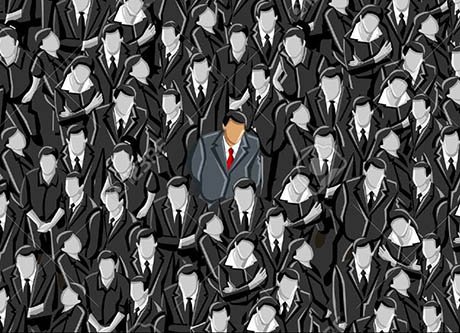Loneliness is the most deadly disease a human soul can suffer.
It wounds a heart. It numbs a mind. It breaks a soul. Worst of all, it’s invisible to the others in the crowd.
Nobody spots the lonely man or woman going about his or her business — working, talking, laughing, caring for others, pretending all is well. The lonely soul wears a mask — and nobody sees what lies underneath until something inside breaks.
Around 1960, there were 3 billion souls on this planet. Less than 60 years later, there are around 7.5 billion of us. Those of us in the West — and particularly in the U.S. — are wealthy enough to be around as many or as few others as we want.
We’re more connected than ever. At least theoretically. A couple of centuries ago, a man might never know more than a few hundred people. He would marry from among a limited number of women. He would have few opportunities to make a living. He had no hope of making something better of himself.
With the Internet and modern transportation, I can get to know the right woman — wherever she is — and marry her. (Theoretically, at least.) I am surrounded by people with money and resources and ideas. I can travel to whatever opportunity I want. I have every hope and expectation of making something better of myself.
So why do so many of us feel most alone in crowds? Why do so many of us walk silently around in a bubble — in a lonely fog — reaching out from wounded hearts and whispering, “Are you the one who will know me? Will you be the one who will love me and never leave?”
We face a crisis today of hidden depression. I’d never heard of “high-functioning depression” until a year or so ago, but it’s rampant. And I’ve experienced it.
We think of the depressed person as someone who can’t function. The stereotype is that he or she stays in bed all day or collapses on a couch in front of a television, refusing to work or do much of anything. But someone with high-functioning depression is different.
There are some people — including me at times — who can look perfectly normal to others. They can get their work done. They can act professionally. They can laugh easily with others and follow every expected social script. But inside, those people are falling apart — shriveling as the lonely soul dies without the one thing it most desperately needs.
When people typically interacted with only a few hundred people over the course of their lives, they had nowhere to hide. They walked with each other to the same water sources. They hunted or planted together. They spent intimate time in religious communities together.
Today, we hide in our homes. We hide in our cars as we zip from one place to another. We dart into offices where we put on masks and become someone else. And then we leave those people behind and return to homes where we put on yet another mask. Not only does almost no one know us, but people who know us in different parts of our lives see us wearing different masks.
And some people wear their masks so well that they become comfortable with them — and they forget who they really are and what their souls need.
But no matter how comfortable the masks become, the soul inside is lonely. The heart hurts. The heart slowly breaks. The mind numbs itself with pleasure or work or drugs or sex or success. The mind does anything to stay busy and avoid thinking about the soul which is dying all alone.
And we consider this hell on earth to be normal life.
The only thing worse than being alone is being with people with whom we don’t fit. It might be a spouse who’s a terrible fit. It might be a boss or co-workers who don’t understand us. It might be family members who are dysfunctional and bring pain. For some of us, it can be even broader than that — those of us who fit in society so poorly that it’s always a struggle to find people who are anything like us.
I don’t know what the answer is, but I know this is going on all around me. On the rare occasions when I bring it up, a few tortured souls have a flicker of recognition in their eyes and murmer, “Really? You, too? I thought it was just me!”
For some of us, life is difficult — for many reasons. It’s a struggle to find a place to fit. It’s a struggle to find genuine love — not the counterfeit kind which is so commonly offered by selfish people. It’s a struggle to find work that gives purpose to our productive days. It’s a struggle to find hope that life has meaning and that it’s worth continuing the fight — that life isn’t worth giving up on.
Mostly, though, it’s a struggle not to feel numb. It’s a struggle not to let the hurt of loneliness destroy the soul.
The loneliness inside is killing us — and genuine love is the only cure for this most deadly disease.

 A year after surreal experience of surgery, I’m still happy to be alive
A year after surreal experience of surgery, I’m still happy to be alive If you want to honor military dead, stop supporting unnecessary wars
If you want to honor military dead, stop supporting unnecessary wars What do you really want in life? Believe actions, not empty goals
What do you really want in life? Believe actions, not empty goals